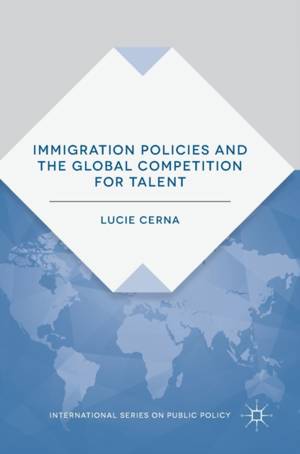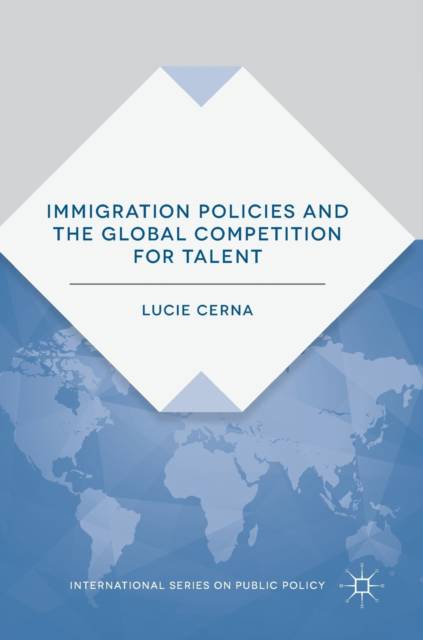
- Afhalen na 1 uur in een winkel met voorraad
- Gratis thuislevering in België vanaf € 30
- Ruim aanbod met 7 miljoen producten
- Afhalen na 1 uur in een winkel met voorraad
- Gratis thuislevering in België vanaf € 30
- Ruim aanbod met 7 miljoen producten
Immigration Policies and the Global Competition for Talent
Lucie CernaOmschrijving
This book examines the variation in high-skilled immigration policies in OECD countries. These countries face economic and social pressures from slowing productivity, ageing populations and pressing labour shortages. To address these inter-related challenges, the potential of the global labour market needs to be harnessed. Countries need to intensify their efforts to attract talented people - the best and the brightest. While some are excelling in this new marketplace, others lag behind. The book explores the reasons for this, analysing the interplay between interests and institutions. It considers the key role of coalitions between labour (both high- and low-skilled) and capital. Central to the analysis is a newly constructed index of openness to high-skilled immigrants, supplemented by detailed case studies of France, Germany, Sweden, the United Kingdom and the United States. The book contributes to the literature on immigration, political economy and public policy, and appeals toacademic and policy audiences.
Specificaties
Betrokkenen
- Auteur(s):
- Uitgeverij:
Inhoud
- Aantal bladzijden:
- 283
- Taal:
- Engels
- Reeks:
Eigenschappen
- Productcode (EAN):
- 9781137571557
- Verschijningsdatum:
- 25/07/2016
- Uitvoering:
- Hardcover
- Formaat:
- Genaaid
- Afmetingen:
- 148 mm x 210 mm
- Gewicht:
- 521 g

Alleen bij Standaard Boekhandel
Beoordelingen
We publiceren alleen reviews die voldoen aan de voorwaarden voor reviews. Bekijk onze voorwaarden voor reviews.











